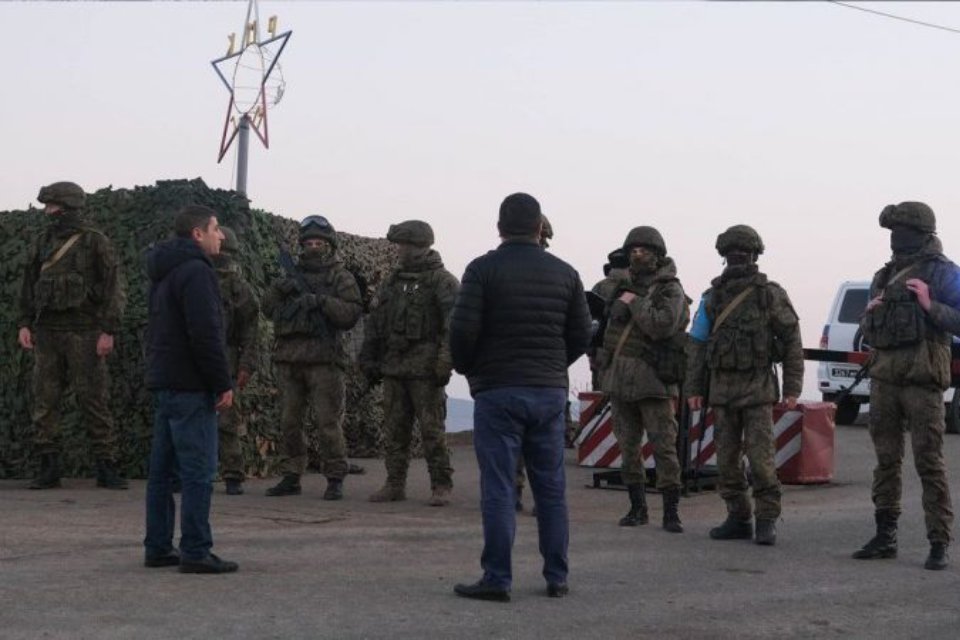Following over two weeks without new supplies of food and medicine, ethnic Armenians in the disputed region of Nagorno-Karabakh are preparing for a “long-term siege” by Azerbaijan, the regional Armenian leader claimed.
Since December 12, Azerbaijani activists and Russian forces have been engaged in gunfire in the Lachin corridor, the sole route via Azerbaijan that connects Armenia and Nagorno-Karabakh.
The fragile peace process between Armenia and Azerbaijan, which have fought two wars since the collapse of the Soviet Union, has been damaged by the blockade of the corridor. The European Union and the United States have urged Azerbaijan to open the vital passage.
The route was allegedly closed by the Russian peacekeeping forces, according to Azerbaijan, which denies blocking it.
In a video conversation with Reuters from Stepanakert town, Ruben Vardanyan, the leader of the breakaway region’s government, said that the “blockade” was putting “huge psychological pressure” on the Armenian population.
“We will not be starving because there is enough food available. However, there are some things we cannot obtain on our domestic market, ” he said.
“We have a long winter ahead of us. Before we receive any grain, herbs, or other food that we can cultivate on our land, it will be at least 100 days. As a result, we are preparing for a prolonged blockage”, Mr. Vardanyan emphasized.
Although the international community recognizes Nagorno-Karabakh as being a part of Azerbaijan, its 120,000 residents, almost all Armenians, broke away from Baku in the first war in the early 1990s.
The latest Armenia-Azerbaijan war in 2020 resulted in a ceasefire mediated by Russia. Azerbaijan regained control of Nagorno-Karabakh.
Russia, Yerevan’s ally in the CSTO military block, failed to provide Armenia with military support in the conflict. And as a ‘peacekeeper’ in the conflict region, Moscow fails to ensure safety. Experts say that the Armenian partnership with Russia ended up in Moscow’s deals with Turkey, Baku’s supporter, behind the scenes. As a result, Armenia is losing the Nagorno-Karabakh region.
Both sides lost hundreds of soldiers in new fighting in September 2022, and despite many violations of the 2020 truce, Armenia and Azerbaijan have not signed a lasting peace treaty.
According to the Armenian side, Baku orders the Azerbaijanis to block the route. Azerbaijani government claims that its citizens are just protesting against mining by Armenians, with no plans to block the road.
Jeyhun Bayramov, the foreign minister of Azerbaijan, said that rumors of a blockade “do not reflect reality” and that Russian peacekeepers, Red Cross vehicles, and ambulances may travel freely along the Lachin corridor.
At an Armenian government meeting last week, Prime Minister Nikol Pashinyan said the situation surrounding the Lachin corridor was “very tense” and that he had offered Azerbaijan conditions in exchange for releasing the blockade.
Vardanyan claimed Azerbaijan was using the blockade to convince the Armenian population in Nagorno-Karabakh that they have “no future” there, so “squeezing them out” of the area.
Winter is the most convenient time to increase this kind of pressure. The internet, power, and gas are all under Azerbaijan’s control. “They are free to do what they decide,” he continued.

